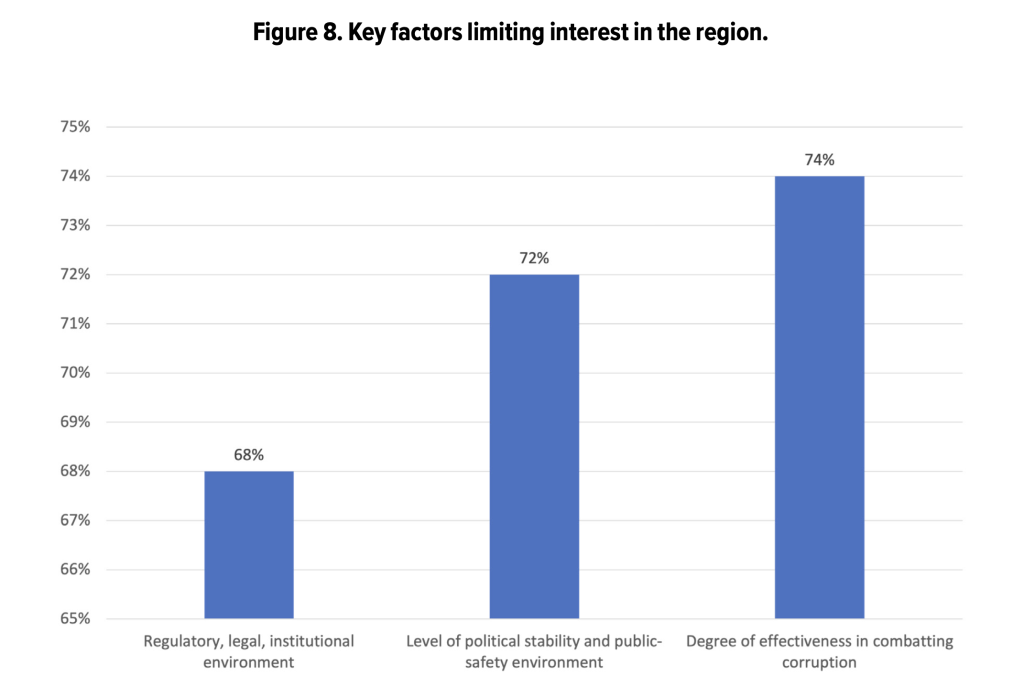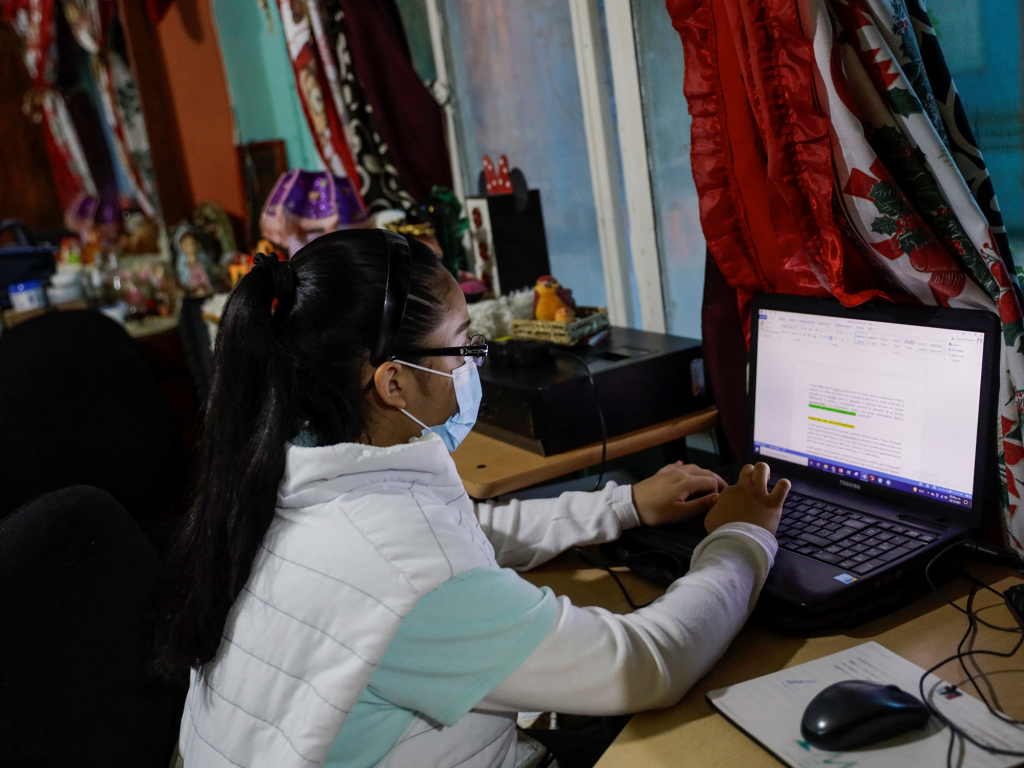Improving state governance, institutional capacity, and transparency
This is the 3rd installment of the Unlocking Economic Development in Latin America and the Caribbean report, which explores five vital opportunities for the private sector to drive socioeconomic progress in LAC, with sixteen corresponding recommendations private firms can consider as they take steps to support the region.
How does the private sector perceive Latin America and the Caribbean (LAC)? What opportunities do firms find most exciting? And what precisely can companies do to seize on these opportunities and support the region’s journey toward recovery and sustainable development? To answer these questions, the Atlantic Council collaborated with the Inter-American Development Bank (IDB) to glean insights from its robust network of private-sector partners. Through surveys and in-depth interviews, this report identified five vital opportunities for the private sector to drive socioeconomic progress in LAC, with sixteen corresponding recommendations private firms can consider as they take steps to support the region.
Improving state governance, institutional capacity, and transparency
The private sector has a strong opportunity to contribute to, and benefit from, a better business climate in LAC by partnering with governments to improve state governance, particularly in three areas: “regulation and institutional environment,” “political instability,” and “corruption.” Every survey respondent named at least one of these issues as a regional detriment, while 85 percent selected two, as seen in Figure 8. Several indices of governance, such as the World Justice Project’s Rule of Law Index, rank LAC below the OECD average for measures of accountability, political stability, and government effectiveness, among other indicators, and below the global average for rule of law.1“Worldwide Governance Indicators,” World Bank, last visited January 25, 2022, https://info.worldbank.org/governance/wgi/Home/Reports. Results derived from the World Justice Project’s Rule of Law Index, available at: https://worldjusticeproject.org/our-work/research-and-data/wjp-rule-law-index-2021/current-historical-data. LAC average: 0.523; global average: 0.557 (author’s calculations).

Quality of government and respect for the rule of law—including transparency, accountability, and enforceability—are instrumental in improving effective delivery of public services, as well as creating a business climate that incentivizes domestic and foreign investment and supports private-sector development.
Recommendations for the private sector
Businesses in LAC can assist governments in combating institutional capacity and governance challenges. Private-sector know-how and technology, including digital and cloud-based tools, can streamline government-service delivery and improve user experience. Public-private collaboration on information access and analytics, regulatory issues, and integrity mechanisms can help expose graft, boost transparency, and establish best practices, while keeping citizens informed. Together, these steps can help mitigate the region’s trust deficit, cultivate an attractive business climate, and boost economic growth.
- Improving digital-government services: Private-sector technology and expertise should be leveraged to optimize the provision of government services and boost trust in government.
- Promoting information access and analytics: Firms and citizens can examine and disseminate governments’ open data in ways that enforce transparency and accountability in the public sector (for example, in public procurement).
- Improving integrity and regulatory quality: Commitment by the private sector (and the public sector) is critical to enhancing governance in LAC, from combating corruption to improving regulations.
About the author
Related content

The Adrienne Arsht Latin America Center broadens understanding of regional transformations and delivers constructive, results-oriented solutions to inform how the public and private sectors can advance hemispheric prosperity.
Image: FILE PHOTO: FILE PHOTO: People wait in line to cast their ballots for the upcoming presidential election as early voting begins in Houston, Texas, U.S., October 13, 2020. REUTERS/Go Nakamura/File Photo/File Photo





